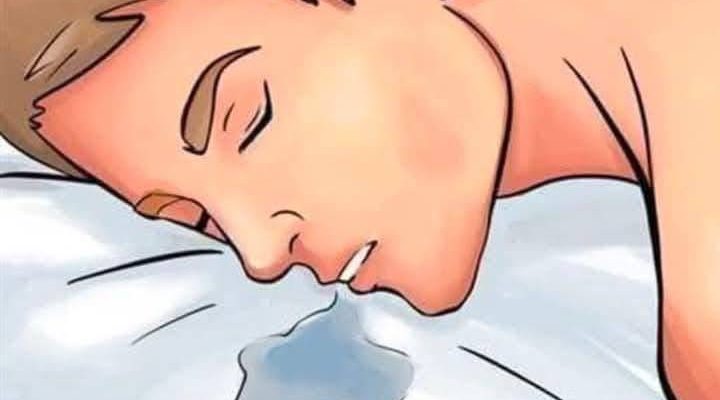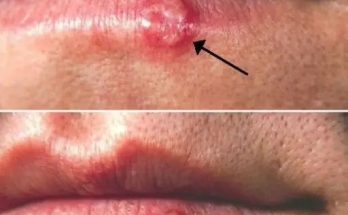Here’s a detailed blog post on the topic:
🤕 If You Drool While Sleeping, It Is a Sign That Your Brain… (Surprising Facts You Need to Know!)
Drooling in your sleep is something that many people experience but rarely talk about. If you’ve ever woken up to a wet pillow, you might have wondered—why does this happen? Is it normal, or is it a sign of something serious? The answer might surprise you!
In this post, we’ll dive deep into the science behind drooling while sleeping, what it reveals about your brain, and when you should be concerned.
🧠 What Is Drooling in Sleep?
Drooling, also known as sialorrhea, is the unintentional flow of saliva from the mouth. It’s common in babies and toddlers who haven’t fully developed their swallowing reflexes, but many adults experience it too.
The body produces saliva throughout the day to aid digestion, protect the teeth, and keep the mouth moist. Normally, we swallow saliva automatically. However, during sleep, our swallowing reflex slows down, and if the mouth is slightly open, saliva can escape.
🌙 Why Do People Drool in Their Sleep?
Several factors can cause or contribute to drooling at night. Here are the most common ones:
1. Deep Sleep and Relaxation
If you drool while sleeping, it might mean that you’re experiencing deep sleep or REM (rapid eye movement) sleep. This is a good thing! Deep sleep is essential for brain function, memory consolidation, and body repair.
During deep sleep, your muscles relax completely—including the muscles in your mouth. If you sleep with your mouth slightly open, saliva may escape.
💡 What This Means: If you wake up with a drool-stained pillow, it could be a sign that you’re sleeping well and entering the deepest, most restorative sleep stages.
2. Sleeping Position
Your sleeping posture plays a big role in drooling. People who sleep on their side or stomach are more likely to drool than those who sleep on their back.
Why? Because gravity pulls the saliva downward and out of your mouth when you sleep on your side or stomach.
💡 What This Means: If you want to reduce drooling, try sleeping on your back with a supportive pillow.
3. Nasal Congestion and Allergies
If you have a stuffy nose due to allergies, a cold, or sinus issues, you may breathe through your mouth while sleeping. This increases the chances of drooling since the mouth remains open.
💡 What This Means: If you have frequent nasal congestion, treating the underlying cause can help reduce drooling.
4. Neurological Conditions
Certain neurological conditions, such as Parkinson’s disease, stroke, and cerebral palsy, can affect the muscles that control swallowing, leading to excessive drooling.
💡 What This Means: If you experience frequent and severe drooling along with other neurological symptoms, consult a doctor.
5. Acid Reflux (GERD)
Gastroesophageal reflux disease (GERD) can trigger excessive saliva production. When stomach acid flows back into the esophagus, the body tries to neutralize it by producing more saliva.
💡 What This Means: If you have heartburn, frequent burping, or throat irritation, GERD might be the reason behind your nighttime drooling.
6. Medications and Side Effects
Some medications, particularly those used for mental health conditions, Parkinson’s disease, or allergies, can increase saliva production or affect muscle control, leading to drooling.
💡 What This Means: If you suspect your medication is causing excessive drooling, talk to your doctor about possible alternatives.
🧠 The Surprising Connection Between Drooling and Brain Health
Now, let’s get to the big question: What does drooling in your sleep say about your brain?
1. Your Brain Might Be Entering a Deep Restorative State
Drooling can be a sign that your brain is experiencing high-quality, uninterrupted sleep. Studies show that deep sleep is crucial for cognitive function, memory retention, and emotional regulation.
💡 If you wake up drooling occasionally, it could mean your brain is well-rested and functioning optimally.
2. Your Brain Might Be Sending Signals of Stress or Fatigue
On the flip side, excessive drooling can also be linked to exhaustion or stress. When the brain is overtired, the body may not regulate muscle control properly, leading to drooling.
💡 If you experience drooling along with constant fatigue, it might be time to reassess your sleep quality and stress levels.
3. Neurological Imbalances Can Play a Role
If drooling is persistent, it may indicate a mild neurological imbalance. Conditions like sleep apnea, bruxism (teeth grinding), or nerve dysfunction can interfere with muscle coordination, leading to drooling.
💡 If drooling is excessive and occurs with other symptoms like snoring, choking, or daytime drowsiness, a sleep study might help diagnose the issue.
🚀 How to Reduce Drooling While Sleeping
If drooling is becoming a nuisance, try these solutions:
✅ Adjust Your Sleeping Position – Sleep on your back to minimize drooling.
✅ Treat Nasal Congestion – Use a humidifier, saline spray, or allergy medications to clear your airways.
✅ Stay Hydrated – Drink enough water during the day to regulate saliva production.
✅ Check Your Medications – If you suspect a medication is causing excessive drooling, ask your doctor about alternatives.
✅ Practice Good Oral Hygiene – Regular dental checkups can rule out infections or other oral health issues contributing to excessive saliva.
✅ Manage Acid Reflux – Avoid spicy foods, eat smaller meals, and don’t lie down immediately after eating.
✅ Seek Medical Advice – If excessive drooling persists, consult a doctor for proper evaluation.
🤔 Final Thoughts: Should You Be Worried About Drooling in Your Sleep?
For most people, occasional drooling is completely normal and even a sign of deep, high-quality sleep. However, if it becomes excessive or is accompanied by other symptoms like difficulty swallowing, speech issues, or neurological symptoms, it’s best to consult a healthcare professional.
Drooling might be a minor inconvenience, but it can provide valuable clues about your brain function, sleep quality, and overall health.
So, the next time you wake up to a damp pillow, instead of being embarrassed, take it as a sign that your brain might be getting the deep rest it needs! 💤💙
What do you think? Have you ever noticed drooling in your sleep? Let’s discuss in the comments! 👇



